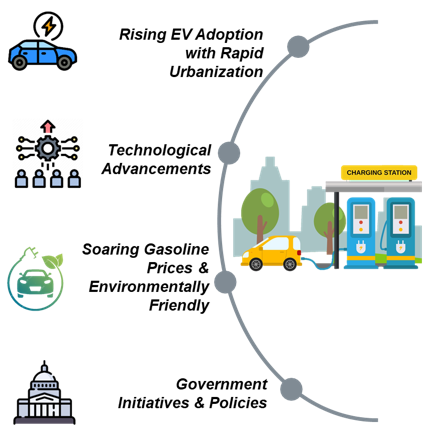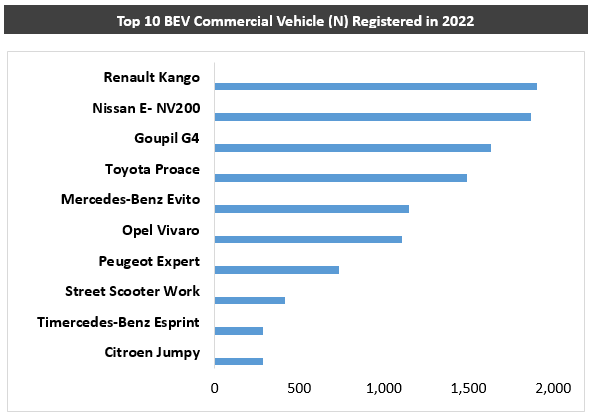1.Rising EV penetration with rapid urbanization, technological advancements, environmental concerns and government policies towards increasing EV are few boosters to this market.

Interested to Know More about this Report:- Request for a sample report
The technological advancements in the EV Charging Equipment like smart charging which delivers reliable, safe, renewable, and cost-effective energy to EVs while meeting the needs of drivers and local grids.
The Netherlands government lays policies and implements regulations to encourage the adoption of EVs and developing the charging infrastructure. It sets out plan by 2025, new buses used in public transport should be zero emission and the entire fleet should be zero emissions by 2030. In 2022 the government budgeted 71 Mn euros for 22,000 new electric cars
Switch towards EV due to rising gasoline prices where Netherlands had the highest diesel prices which has increased to 2.3 euros per liter and unleaded fuel price has increased to 2.5 Euro per liter at in 2022 that release emissions.
2.Renault Kano, Nissan E-NV200, Ford Transit and LEVC VN5 are the top electric commercial vehicle registered in Netherlands in 2022.

Visit this Link :- Request for custom report
- Renault Group is focusing into electric vehicle segment by launching wide variety of commercial electric vehicle like Master E-tech electric van, Renault Kango which also the best seller in Netherland in 2022. The company is also involved in “we drive solar” initiative and JEDLIX, an application that allows to manage smart charging is 25% owned by Renault Group.
- The Electric commercial vehicle market may take considerably longer to go electric, due to the large battery sizes required for long-distance haulage and the time taken to charge.
- Key trends in independent electric vehicle drive battery stations.
TUV Rhineland has opened an independent test canter for electrical vehicle drive batteries at the Dutch-German Avanti’s business park in the Netherlands, covering an area of around 2,200 SQM for EUR 24 Mn.
The Netherlands government has set to ban internal combustion engine vehicles by 2030. The implementation will be followed by 30-40 major cities in the country by 2025.




